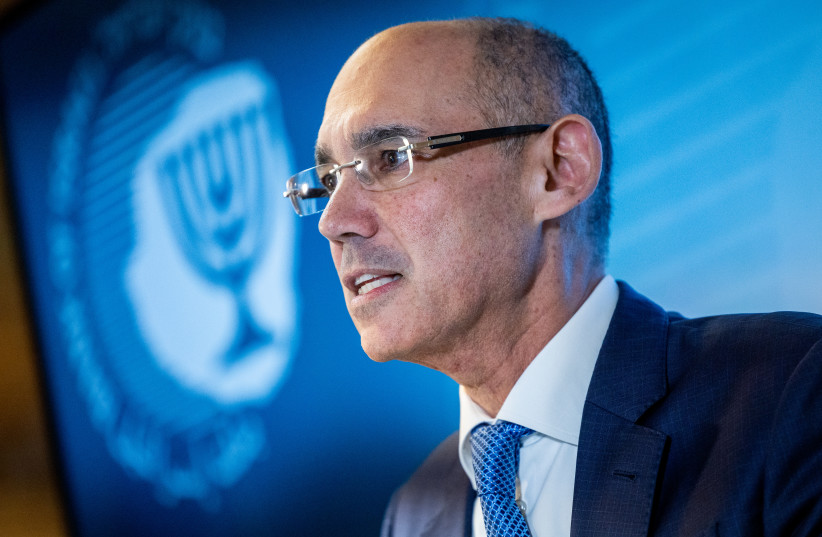Bank of Israel Governor Amir Yaron met with Prime Minister Benjamin Netanyahu on Sunday and discussed whether Yaron would consider a second term, the central bank said, with both sides agreeing to decide after the Jewish high holidays next month.
Yaron, whose five-year term ends in December, also urged the prime minister to seek a broad public consensus of the government's plan to overhaul Israel's judiciary, to preserve the country's strong economy.
The high holiday season this year is Sept. 16 to Oct. 7.
The central bank declined to comment when asked whether Netanyahu had asked Yaron to stay for a second term. Netanyahu's office also did not comment.
Yaron, an Israeli-born US finance professor, who was nominated by Netanyahu in 2018, has been critical of the economic impact of a plan by Netanyahu's government to limit the powers of the Supreme Court.

Challenges for Israeli bankers
The issue of whether Yaron will seek, or be reappointed for a second term, has loomed over financial markets for months.
"Whoever is the governor has to continue to be independent and to express the professional opinion in matters concerning the Israeli economy," Yaron said in an interview with Reuters last week. "And that such a position provides confidence to the markets."
Yaron said the last five years have been "one of the most challenging" for any Israeli central banker, citing five election cycles, the COVID-19 pandemic, the Ukraine-Russia war, inflation and the government's plan to overhaul the judiciary that has sparked mass protests and polarized the Israeli public.
Israeli media have also reported that Netanyahu has already reached out to a number of US academics to succeed Yaron.
Policymakers last week held the benchmark interest rate at 4.75% for a second straight time after having raised 10 times from 0.1% since April 2022 to tame inflation. Yaron fought off criticism and potential legislation from lawmakers over steep rate increases that have boosted bank profits and harmed mortgage holders, while banks were slow to pass on higher rates to savings accounts.
